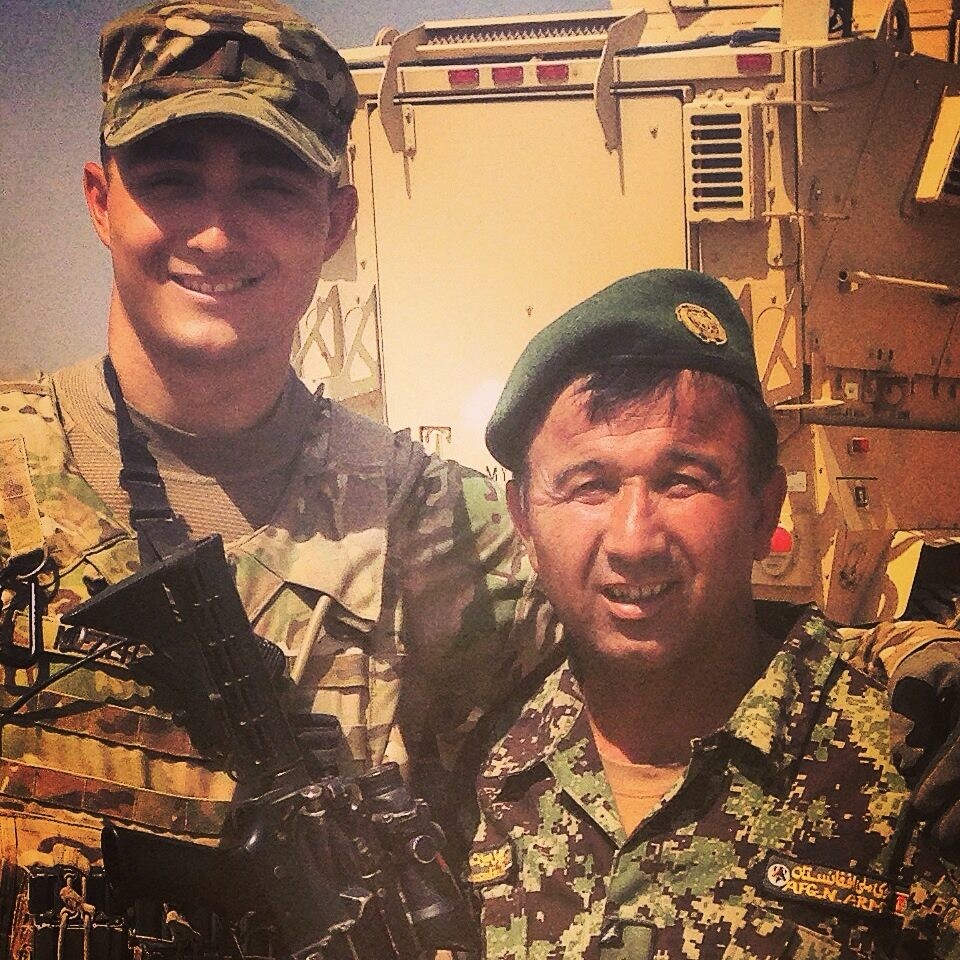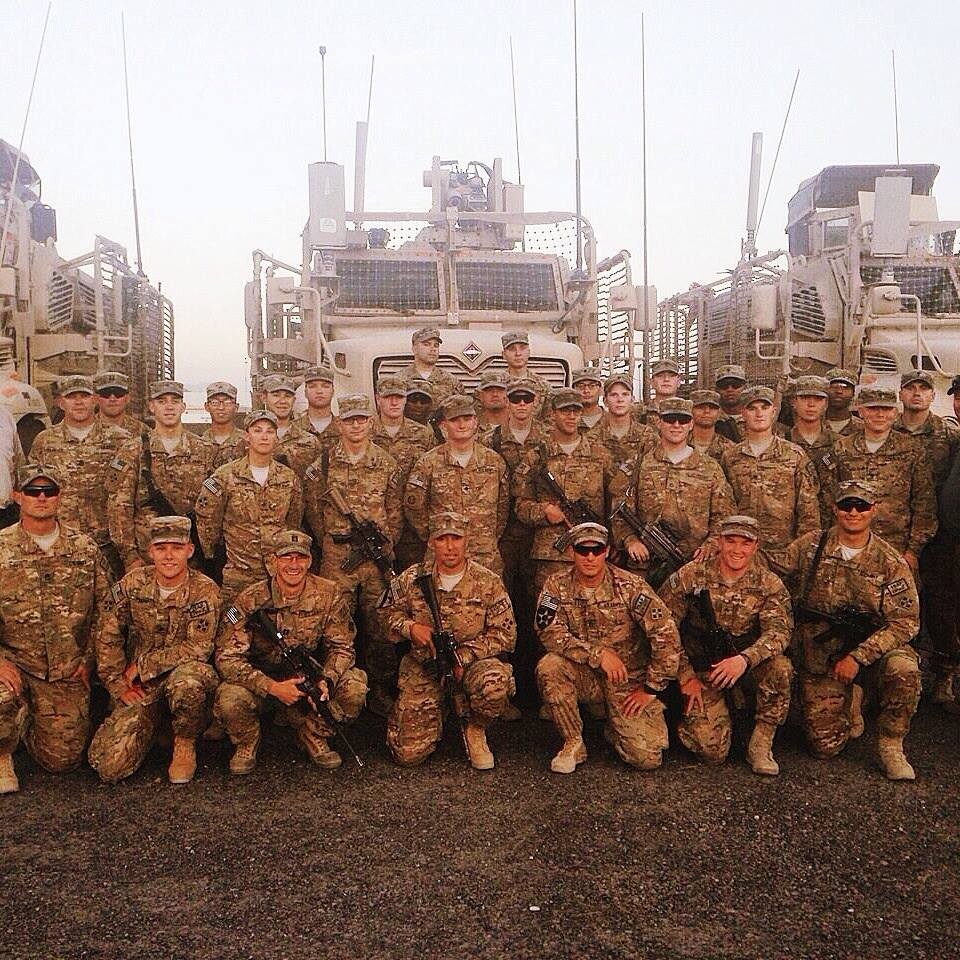Last week, it was an honor to sit down with Matt Mezer, a rising star in the pharmaceutical industry whose career journey exemplifies resilience, service, and leadership. From West Point and combat tours in Afghanistan to shaping strategy and operations in oncology, Matt’s story highlights how military values translate seamlessly into healthcare and business.
My purpose in sharing this conversation is to spotlight not only Matt’s path, but also to inspire veterans and active service members who may be considering a transition into pharma. His journey demonstrates that the discipline, grit, and sense of mission forged in the military can drive meaningful impact for patients and health care organizations alike.

Noah Pines (NP): Matt, let’s start at the beginning. What drove your decision to join the Army?
Matt Mezer (MM): I grew up in Arlington, Massachusetts, an Irish Catholic, blue-collar town. After 9/11, something shifted in me. Around that time, my older brother returned from a trip to Israel and told me that everyone his age there -- 18-year-olds -- was serving in the military or doing public service. Meanwhile, his peers here were mostly focused on the next party.
That contrast stuck with me. It planted the idea that I wanted to serve something greater than myself. I didn’t have close military mentors, but I knew public service would shape me.
West Point became that path. I was recruited to play lacrosse, and when the Army coach called, I’ll never forget walking downstairs and telling my mom I was visiting West Point. Her immediate reaction was, “No way.” But I had already committed.
When I arrived, before the visit even started, I was woken at 4:00 AM by hundreds of cadets running drills outside the hotel window. Watching their grit and discipline through the dense West Point fog fired me up. I turned to my dad and said, “This is exactly where I want to be.”
NP: How did West Point shape your leadership approach and mindset?
MM: West Point is a crucible. There’s something extraordinary about being surrounded by 4,000 people all striving to be the best version of themselves. Competition is constant, and in my view, that’s a good thing. But it’s not about outdoing others -- it’s about preparing to lead soldiers in high-pressure, life-or-death situations.
I learned quickly that leadership wasn’t about rank or ego. It was about accountability, humility, and service. My lacrosse coach, Joe Alberici, was a huge influence. His lessons on leadership through sport carried into combat and later into business.
After graduation, I branched into Reconnaissance and was stationed at Fort Carson in Colorado. I thought I’d be snowboarding in the Rockies, but instead I got an email: “If you can get here in two weeks, you’re deploying to Afghanistan.” Ten days later, I was on a plane.
That moment defined readiness for me. You don’t get to choose when you’re ready -- the mission dictates it.
NP: Tell me about Afghanistan. What experiences shaped you most?
MM: Leading a platoon. I was first in Kandahar, the birthplace of the Taliban, and later moved with my soldiers to Kabul. Kandahar was austere and tense. Kabul was different: women proudly going to school, NATO allies investing in infrastructure. It gave me hope we were doing some good.

But the responsibility was immense. My platoon sergeant, Carlos Cotto, with several deployments under his belt, was my right hand. My First Sergeant, Jason Dein, one of the toughest leaders I’ve ever met, drilled into me the mantra: always present a hard target. Many of my soldiers had Purple Hearts and stories of loss. I was the least experienced person in the room. My job was to earn their trust, hold the standard, and empower them every day.
Every mission meant asking: “Is this the day?” That constant vigilance -- incessantly fighting complacency -- was the hardest challenge. I was fortunate not to lose a soldier under my command, but many of my men carry the grief of fallen friends.
NP: How did those experiences shape your philosophy of leadership?
MM: Afghanistan reinforced what West Point instilled: leadership takes no plays off. The beacon of my philosophy is a quote I hold close: “What you leave behind is not what is engraved in stone monuments, but woven into the lives of others.”
Afghanistan taught me the fragility of life itself. It helped me orient on what matters most: people. Professionally, it’s the people I have the privilege to serve alongside. Personally, it’s my family and friends. That perspective has become my compass.
NP: Let’s move to your transition. How did you shift from the Army to the pharmaceutical industry?
MM: Leaving the Army was daunting. Recon officers aren’t exactly a hot job category in New York City. But two things anchored me: my wife and my desire to keep serving.
My wife’s career was rooted in New York, and I knew the Army’s next posting wouldn’t be there. She had supported me through deployments -- packages, letters, unwavering encouragement. It was my turn to adapt.
I explored everything. I shadowed people in finance, real estate, consulting. But my heart kept coming back to healthcare. Even as a kid, I imagined becoming an Army doctor. Healthcare felt like a field where your work could have a lasting legacy.
The turning point was joining American Corporate Partners (ACP). They paired me with Mary Christian, then at Bristol-Myers Squibb. She became my guardian angel. She mentored me not just on career but on life -- how to ask my wife’s parents for her hand in marriage, how to translate military skills into business language. She even arranged a day for me to meet leaders at BMS. That access and encouragement validated healthcare as my future path.
NP: Looking at your resume -- is that what led you to the program at Johnson & Johnson?
MM: Exactly. In 2018, I joined J&J’s Military Veteran Leadership Development Program (MVLDP), a pilot designed to bring veterans into life sciences.
The program gave me three rotations:
The pace was like deployment: long nights, weekends, high stakes for the P&L. But it was invaluable. I gained breadth, confidence, and mentors who believed in me. I credit John Perez, Erica Jeffries-Purdo and many other colleagues who opened doors, and the veterans who blazed the trail before me. They proved that veterans can deliver real business impact on day one.
NP: After J&J, you moved into sales. What was that like?
MM: Equally humbling and rewarding. Personally, it validated that this is a world where I can continue serving in the way I aspire to. Professionally, most pharma executives had sales experience, and I knew if I wanted to lead one day, I needed to understand the customer.
I have to credit Laura Leonetti and John Kerrane for taking a chance on me. I had neither pharmaceutical sales nor direct oncology experience. But they saw my potential and gave me the opportunity.
Two weeks after I completed sales training, COVID shut down New York City. Oncologists were exhausted, nurses overwhelmed, patients vulnerable. My role became less about pitching products and more about listening, empathizing, and showing up with respect. That experience reshaped my understanding of customer value.
From there, I realized how critical market access is. Without the right access strategy, patients don’t get the drugs they need, no matter what clinical trials prove. I led pharmacy channel strategy and operations, then became a national account director in the infusion service provider space. That role was a crash course in how the US healthcare system really works.
NP: And today, you’re at Ipsen. What does your role look like?
MM: I’m Associate Director of Operations in oncology. Ipsen is smaller and leaner than J&J, so I wear a lot of hats: strategy, operations, and special projects. I love that. It feels closer to my military roots, where you’re responsible for many moving parts and need to adapt quickly.
What excites me most is being part of critical projects that directly impact patients and the business. At Ipsen, I can feel my fingerprints on outcomes. Much of my work is directly collaborating with my medical, commercial, and access functional leaders. I feel like I'm seeing the true breadth of what it takes to run a billion dollar pharmaceutical franchise.
NP: Looking ahead, what are your professional aspirations?
MM: I aspire to lead an organization. Not tomorrow...but I’m building toward it. Leaders like Alex Gorsky, Courtney Billington, Kathy Widmer, David Esposito, and Sandi Hassett, along with countless other military veterans and West Pointers, inspire me. They’ve shown that service, discipline, and values can scale into corporate leadership.
I’m focused on continuing to grow in commercial and general management roles, building the competency and experience needed to eventually take that step.
NP: You’ve credited mentors throughout your journey. What message do you share with veterans who want to enter life sciences?
MM: First, be real about the challenge. Pharma is competitive and technical. The onus is on you to translate your skills, network effectively, and find your sponsor.
But don’t shy away from the challenge. The values align. In the Army, the ethos is “mission first.” In life sciences, it’s “patients first.” That common DNA makes veterans a great fit.
Mentorship is critical. I wouldn’t be here without the people who gave me time, perspective, and tough feedback. Veterans need mentors who open doors and help translate military experiences into the lexicon of business.
When I mentor veterans, through ACP or LinkedIn, I tell them: it won’t be easy, but it’s worth it. When you serve patients, you rediscover the same sense of purpose that drew you to serve your country.
NP: Last question, just getting to know you a bit...ever think about running for office? You’ve got the background and the personality.
MM: (laughs) My uncle thinks I should. Some colleagues call me “the governor.” But no, politics isn’t a path I see for myself. My focus is on leadership in healthcare -- on serving patients and communities.
That said, I do believe veterans have a huge role to play in civic leadership. We’ve lived the value of service beyond self. Our country needs leaders like that and I'm privileged to know a few who are actively answering that call.
NP: Matt, thank you! Your journey -- from West Point to Afghanistan to Ipsen -- is a powerful story of service, resilience, and leadership.
MM: Thank you, Noah. I’ve been fortunate with the mentors and opportunities I’ve had. And if I had to do it all again, I absolutely would!